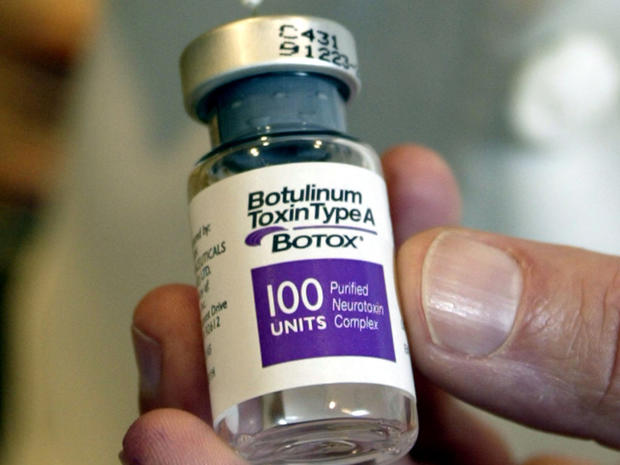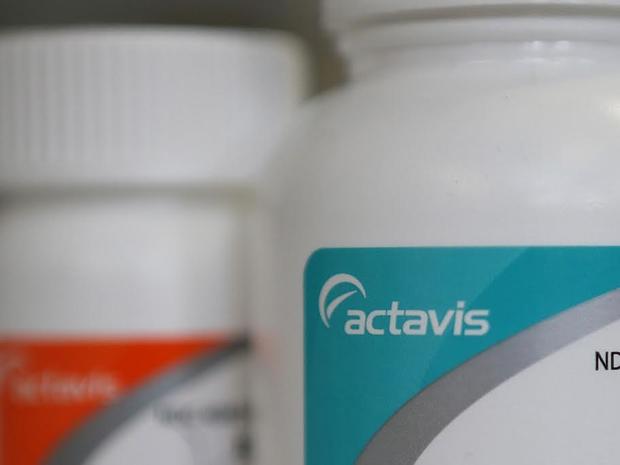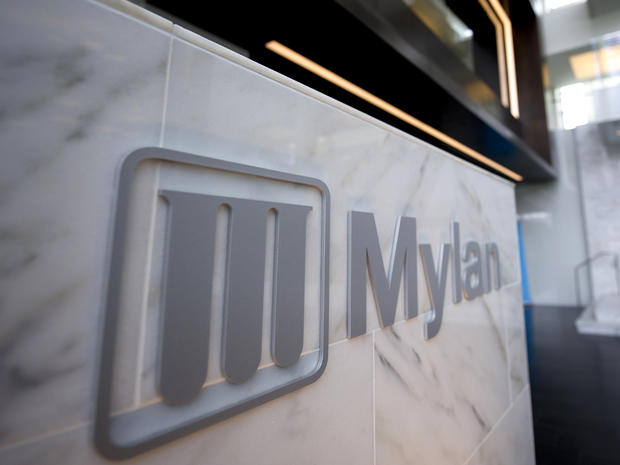Are these companies unpatriotic?
Photo: CBS/AP
For most people, trying to pare their tax bill is simply common sense. But the recent surge in so-called inversion deals is raising the ire of everyone from activists to the Obama administration.
To be sure, the strategy isn't new as a way for multinational corporations to reduce their tax burden. But a recent pickup in the number of businesses using the method is raising red flags, with several large companies recently having bought or merged with foreign firms in order to reincorporate in tax havens overseas.
Like many hot-button topics on Wall Street and Capitol Hill, tax inversions involve money -- lots of it. By moving their headquarters outside the U.S., companies that use the technique will avoid paying almost $20 billion in taxes over the next decade, according to a study from the Joint Committee on Taxation.
Since 1983, 76 U.S. corporations have moved their tax domiciles out of the country, with the pace picking up in recent years, the Congressional Research Service said this month.
In one such transaction, for instance, Walgreen (WAG) is considering moving its base to Switzerland as part of a $16 billion deal to buy the 55 percent of U.K. drugstore chain Alliance Boots it doesn't already own. That would cost taxpayers $4 billion in lost revenue, advocacy group Americans for Tax Fairness said last month.
The statutory corporate tax rate in the U.S. is 35 percent, and while many companies use techniques to reduce their tax bills, inversions are increasingly attractive. Ireland, for instance, has a corporate tax rate of just 12.5 percent.
This week, Treasury Secretary Jacob Lew wrote to members of the House Ways and Means Committee and the Senate Finance Committee, urging lawmakers to take action.
"What we need as a nation is a new sense of economic patriotism, where we all rise or fall together," Lew wrote in the letter. "We should not be providing support for corporations that seek to shift their profits overseas to avoid paying their fair share of taxes."
But it's unlikely that anything will change anytime soon, despite "domestic political noise" about the practice, political risk consultancy Eurasia Group wrote in a report Friday. That's because the Obama administration can't affect change on its own, while Congress is unlikely to tackle tax reform ahead of the November midterm elections.
Inversions have been concentrated in the pharmaceutical industry, which is seeking savings as insurers pressure the companies on drug prices, as well as in the retail, manufacturing and consumer industries. Since 2009, seven corporate tax inversions have taken place, while there are currently 11 pending or under consideration, according to the Ways and Means Committee Democrats.
Below are five of the biggest tax inversions that have been announced this year alone.
AbbVie/Shire: $55 billion
Photo, file: REUTERS/Brendan McDermid
North Chicago, Illinois-based AbbVie (ABBV) is the biggest U.S. company to move to a foreign address for tax purposes. In its proposed $55 billion deal to buy U.K.'s Shire, AbbVie would legally become British, lowering its tax rate from 22 percent to 13 percent, according to Bloomberg News.
AbbVie, which makes the rheumatoid arthritis medicine Humira, said the deal isn't solely for tax purposes. "This is a transaction that we believe has excellent strategic fit, well beyond the tax impact," AbbVie CEO Richard Gonzalez said in a recent conference call to discuss the merger.
Valeant/Allergan: $53.3 billion
Photo, file: Don Murray/Getty Images
Valeant Pharmaceuticals' (VRX) $53.3 billion unsolicited bid for Allergan (AGN), the maker of Botox, would offer tax savings to its target. Irvine, California-based Allergan would become a Canadian company if the merger is successful, bringing down its tax rate from its current 26 percent to the high single digits, according to the Financial Post.
Still, there are some questions looming over the proposed merger, with Allergan fighting the bid. At the same time, its biggest shareholder, activist shareholder William Ackman, is urging Allergan to negotiate with Valeant, and accused Allergan of using a "scorched earth" campaign against the would-be acquirer.
Medtronic/Covidien: $42.9 billion
Photo: AP
In this massive health care merger, Medtronic (MDT) would become an Irish company, taking up the residence of its acquisition target, Covidien (COV).
Medtronic, one of the country's biggest makers of medical devices, would take over not only Covidien's hospital supply line, but a beneficial tax situation. The merger will likely take 2 to 3 percentage points off the company's corporate tax rate, Reuters report, citing Jefferies analyst Raj Denhoy.
Actavis/Forest Laboratories: $25 billion
Photo, file: Justin Sullivan/Getty Images
Generic drugmaker Actavis (ACT) is the product of a previous inversion. In 2013, it bought Ireland's Warner Chilcott, moving its based to Ireland and benefiting from that country's lower tax rate.
Actavis is now extending that lower rate to New York-based Forest, thanks to a $25 billion acquisition that closed earlier this month. The purchase will lower Forest's tax rate to Actavis' 16 percent rate, down from its previous 19.5 percent, Reuters notes.
Mylan/Abbott Laboratories: $5.3 billion
Photo, file: Jeff Swensen/Getty Images
In this deal, Mylan (MYL) is offering to buy generic drugmaker Abbott Laboratories (ABT), with the two companies then forming a new company that would be based in the Netherlands.
Basing the new company there will drop Mylan's tax rate to less than 21 percent in the first year, with the rate later dipping to the high teens, Bloomberg notes. Pittsburgh-based Mylan will continue to manage the company from that Pennsylvania city.





